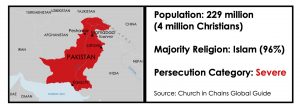
Pakistan was formed during the partition of the Indian sub-continent in 1947 to provide a state for India’s Muslims and in 1956 it became the Islamic Republic of Pakistan. Originally in two parts, East and West Pakistan, the east seceded in 1971 and became Bangladesh.
Pakistan’s founders protected religious freedom – the vision of founding father and first Governor-General Mohammed Ali Jinnah was that Pakistan would be a home for religious minorities alongside Sunni Muslims (the majority of Pakistan’s Muslims). However, successive governments have pursued a policy of Islamisation of the legal system, taxation and public life that has led to discrimination against religious minorities (notably Christians, Ahmadi and Shi’a Muslims and Hindus) and Sharia law has increasingly been applied, even to Christians and Hindus, especially in parts of the northwest where Islamist groups have control.
Under Pakistani law leaving Islam (apostasy) and the proselytising of Muslims are not offences and Christians have freedom to worship. Under Sharia, however, apostasy is punishable by death.
In recent years, Pakistan has experienced tension between progressive modernists and Muslim fundamentalists, and minorities face the threat of extremist attacks, exacerbated by the influence of the Taliban in neighbouring Afghanistan.
Christians in Pakistan
While Pakistan’s constitution guarantees religious freedom, in practice members of religious minority groups are considered second-class citizens and experience social hostility. Christians face discrimination in every aspect of their lives.
Most Christians are from very poor backgrounds, with little education, and work in badly-paid, dirty and sometimes dangerous jobs such as cleaning sewers, sweeping streets and litter picking or are trapped in slavery as bonded brick kiln labourers. Christians often live together in colonies or groups in slums or poor areas of rural villages, making them easy targets for mob attacks by Muslim extremists.
In recent years, militant Islamists have killed or injured hundreds of Christians in attacks on churches, schools and hospitals. The deadliest attack on Christians was the bombing of All Saints Church, Peshawar in September 2013, which killed 127 people. In March 2015, 17 Christians were killed in suicide attacks on two churches in Lahore, capital of Punjab province. Another eighty were injured in the attacks, which were carried out by Taliban offshoot Jamaat-ul-Ahrar in Youhanabad Colony, one of Pakistan’s largest Christian colonies.
On Easter Sunday 2016, 72 people were killed in an anti-Christian suicide bomb attack in Lahore by Jamaat-ul-Ahrar and over 370 people were injured. The terrorists were targeting Christian families who had gone to a park after Easter services in a nearby church. Those killed were mainly women and children, many of them Muslim.
A major religious freedom issue in Pakistan concerns the controversial blasphemy laws, which cover offences such as defiling the Quran and defaming the prophet Mohammed and are often misused to settle personal scores, resulting in many innocent people spending years enduring appalling conditions in prison awaiting trial, their families forced into hiding for fear of attack by extremists. Several Christians have spent years on death row for alleged blasphemy, notably Punjab farm labourer Asia Bibi.
Another serious issue for Christians is abduction, forced conversion and marriage. Every year hundreds of Christian girls and women are kidnapped and forced to convert to Islam and marry their abductors, generally much older Muslims who are often already married with children. This has increased in frequency in recent years and is also an issue for Hindus. Perpetrators know that the likelihood of conviction is low, as police often help the suspects rather than investigating the abductions. In many cases the women and girls are condemned to a life of sexual abuse by their “husbands” or are even trafficked into prostitution.
(AINA, Barnabas Aid, BBC, Compass Direct, Christian Solidarity Worldwide, Operation World, Voice of the Martyrs, World Watch Monitor)
Church in Chains in Action
Church in Chains has engaged in an ongoing dialogue with the Pakistani Embassy in Dublin, campaigning particularly for reform of the blasphemy laws and for the release of Asia Bibi.
In September 2020 the keynote speaker of Church in Chains’ annual conference (who cannot be named or pictured for security reasons) was a Pakistani Christian now living outside the country but a regular visitor there with a mission that supports persecuted Christians.
Also in March 2020 Church in Chains wrote a letter to the Pakistani Ambassador to Ireland, Mr Sardar Shuja Alam, to express shock at the murder of Punjab farm labourer Saleem Masih (a Christian who was tortured to death by local Muslims) and to appeal for urgent action by the government of Pakistan to bring the perpetrators to justice.
In July 2019 a Church in Chains delegation met Ambassador Sardar Shuja Alam to discuss concerns over the continuing misuse of the blasphemy laws and to raise the cases of five Christians in prison under the blasphemy laws.
In November 2018 Church in Chains organised a vigil outside the Pakistani Embassy to protest at Asia Bibi being prevented from leaving Pakistan. Her plight was raised in the Dáil by Labour Party leader Brendan Howlin in October 2018.
In March 2012 Church in Chains promoted a Topical Issues debate in the Dáil in which the Irish government publicly called for Asia Bibi’s case to be resolved and the blasphemy laws reviewed.
In 2011, Church in Chains supporters sent hundreds of postcards calling for the release of Asia Bibi to the Pakistani Embassy in Dublin and a petition signed by 26 TDs and Senators was presented to the Embassy.
PAKISTAN: Police refuse to act in case of kidnapped 13-year-old girl
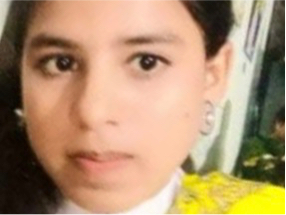
Police have refused to act in the case of a 13-year-old Christian girl who has been kidnapped, converted and forcibly married
PAKISTAN: Christian student released on bail after arrest for blasphemy

Christian student Ashbeel Ghauri (18) has been released on bail following his arrest on a charge of blasphemy
PAKISTAN: 14-year-old Christian boy shot dead by Muslim gunmen
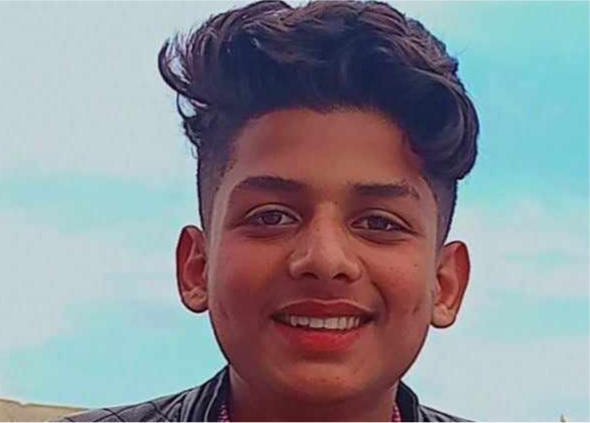
Sunil Masih was shot dead on 5 February while standing outside a shop with other Christian boys.
PAKISTAN: Delays and disappointment for Zafar Bhatti
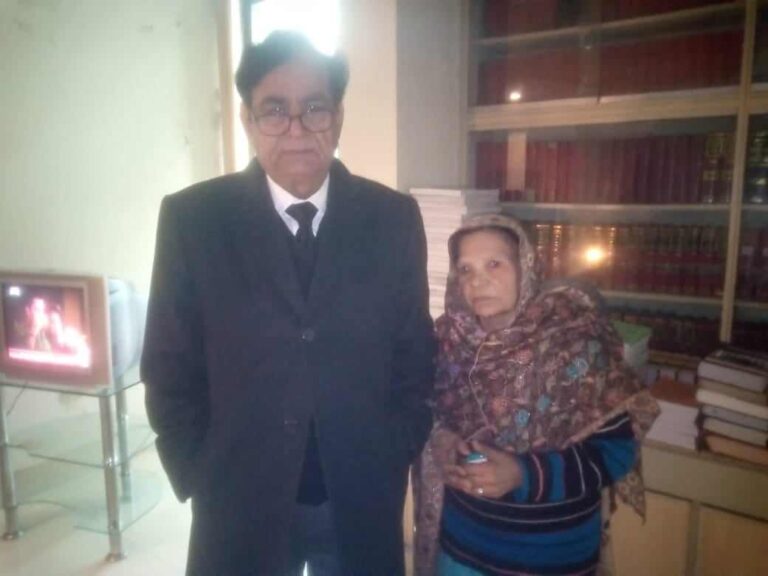
Rawalpindi High Court cancelled Zafar’s appeal hearing that had been scheduled for 11 January
PAKISTAN: Christmas Aid Distribution
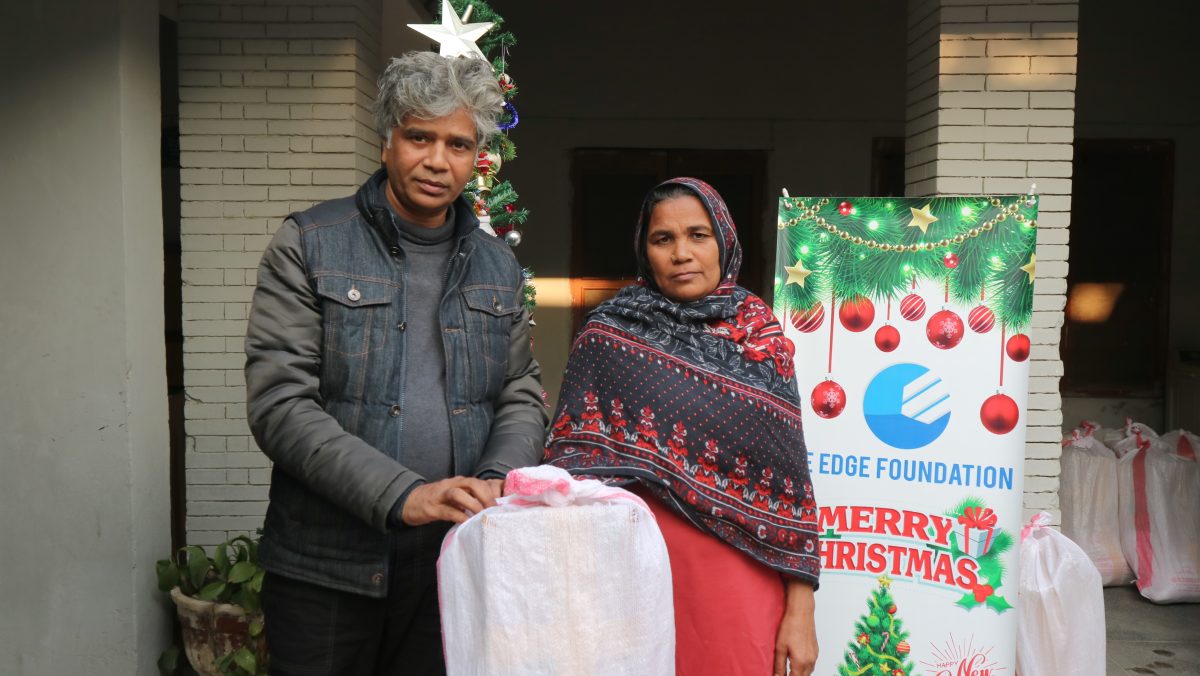
Church in Chains’ partner organisation the Edge Foundation recently distributed aid in its annual Christmas project.
